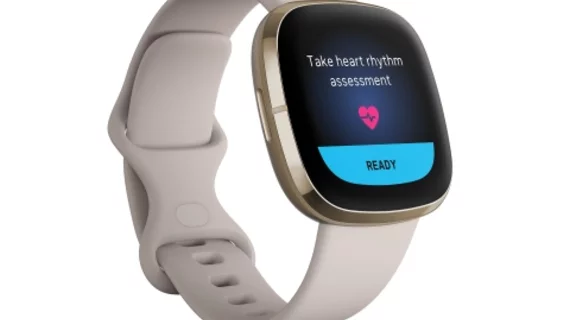Fitbit gains FDA clearance, CE mark approval for AFib detection app
Fitbit announced Monday, September 14, that the company has received FDA clearance and CE mark approval for its electrocardiogram application designed to detect signs of atrial fibrillation (AFib).
The Fitbit ECG App generates recordings of the user’s heart’s electrical rhythm and can detect AFib from normal sinus rhythm. It is scheduled to be available beginning in October 2020.
“Helping people understand and manage their heart health has always been a priority for Fitbit, and our new ECG app is designed for those users who want to assess themselves in the moment and review the reading later with their doctor,” Eric Friedman, Fitbit co-founder and chief technology officer, said in a statement. “Early detection of AFib is critical, and I’m incredibly excited that we are making these innovations accessible to people around the world to help them improve their heart health, prevent more serious conditions and potentially save lives.”
Venkatesh Raman, MD, an interventional cardiologist at MedStar Georgetown Hospital, led a clinical study assessing the solution’s effectiveness, finding that it achieved a sensitivity of 98.7% and specificity of 100%.
“Physicians are often flying blind as to the day-to-day lives of our patients in between office visits,” Raman said in the Fitbit statement. “I’ve long believed in the potential for wearable devices to help us stay better connected, and use real-world, individual data to deliver more informed, personalized care. Given the toll that AFib continues to take on individuals and families around the world, I’m very enthusiastic about the potential of this tool to help people detect possible AFib, a clinically important rhythm abnormality, even after they leave the physician’s office.”

